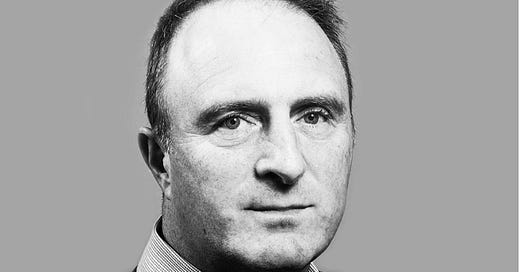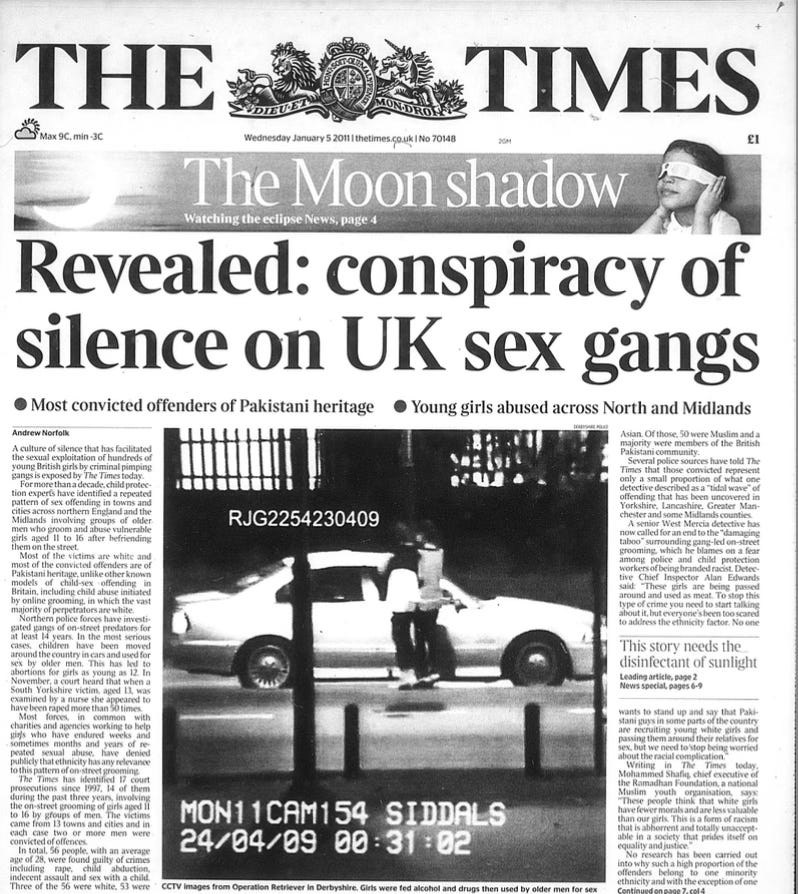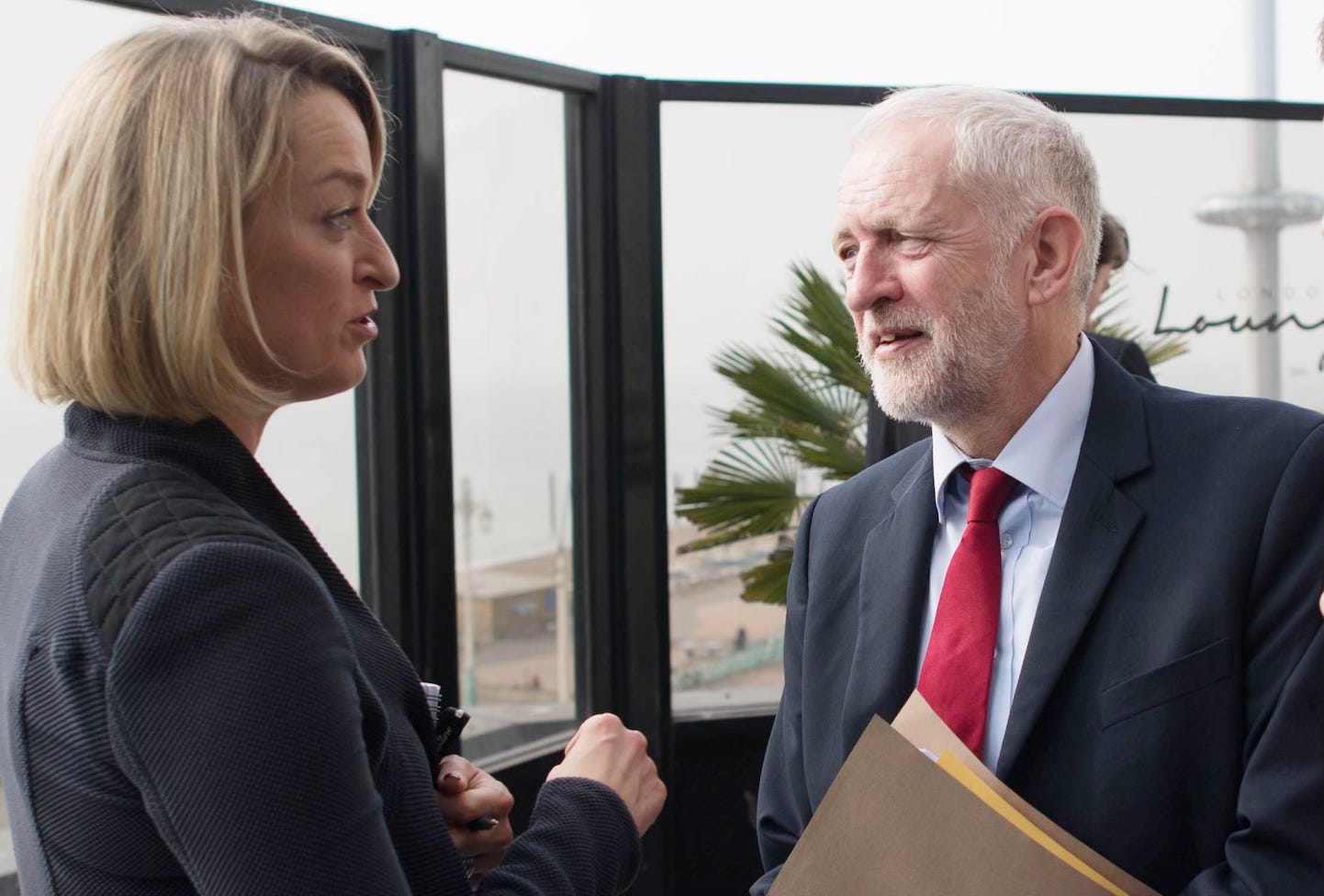James Harding — press baron?
FORMER TIMES editor James Harding has ambitions to become a press baron.
His Tortoise Media company is negotiating to buy the Observer, the “world’s oldest Sunday newspaper,” from its current owners, the Guardian.
Harding, who was also the BBC’s Director of News and Current Affairs from 2014 to 2017, is the largest shareholder in Tortoise.
If he finalises the deal, the Observer’s editorial policy is likely to move to the right.
This is part of a disturbing trend in British media — earlier this month GB News investor Paul Marshall bought the Spectator for £100m.
The hedge fund tycoon is also bidding for the Daily Telegraph.
Press Gang’s analysis suggests that a Harding takeover could lead to redundancies at the Observer.
Tortoise overtakes the Observer
ON TUESDAY, the Guardian’s parent company announced it was in “exclusive negotiations” with Tortoise Media to take over the Observer.
No price has been revealed but Harding said Tortoise would invest £25m in the paper over a five year period.
Tortoise, launched in 2019, specialises in a concept James Harding calls “slow journalism”.
He says this is a response to two problems.
The first is:
… we are overwhelmed by information.
Too many newsrooms chasing the news, but missing the story.
The second is what he calls the power gap:
… the divide between the powerful and the powerless is widening. We feel locked out.
One of Tortoise’s main backers is the American multi-millionaire Matthew Winthrop Barzun.
He was Barack Obama’s choice as US ambassador to Britain from 2013 to 2017.
The independently wealthy Barzun married into the family that founded the Kentucky-based Jack Daniels drinks empire.
James Harding holds a third of Tortoise’s share capital and is the largest single shareholder.
The company has been growing fast — staff jumped from 48 in 2019 to 73 in 2022.
But Tortoise has also been losing money.
The latest accounts, for 2022, show it lost £4.6m in that year, bringing the accumulated losses since it was launched to £16.3m.
Of the more than £20m invested in the company, there was only just over £4m left at the end of 2022.
We asked Harding if the business was continuing to lose money.
We asked where the promised £25m investment in the Observer was coming from.
He did not reply.
Gushers
ON TUESDAY both Harding and the Guardian were waxing lyrical about the virtues of the potential takeover.
Guardian editor Kath Viner said:
This has the potential to be a very positive thing for both the Observer and the Guardian.
My number one priority is a future in which both titles continue to thrive and deliver high-quality journalism to our readers.
It is extremely important to me that the Observer, with its excellent journalistic reputation, loyal readership and heritage as the world’s oldest Sunday newspaper, is in good hands.
Harding was equally gushing:
We think the Observer is one of the greatest names in news.
We believe passionately in its future – both in print and digital.
We will honour the values and standards set under the Guardian’s great stewardship and uphold the Observer’s uncompromising commitment to editorial independence, evidence-based reporting and journalistic integrity.
Like its many, many loyal readers, we admire the strength and heart of the Observer’s reporting, we prize its original, unbiddable thinking and we love it for its passions: food, music, film and art.
George Orwell described the Observer as ‘the enemy of nonsense’; we’re excited to show readers, old and new, that it still is.”
The next day, however, there was an emergency meeting of members of the National Union of Journalists.
Around 250 Guardian and Observer journalists, who had not been consulted about the proposed takeover, attended.
According to a Press Gazette report, the meeting:
… unanimously passed two motions. The first said they were “united in opposition to the sale of the Observer newspaper to Tortoise Media” and that it was a “betrayal of the Scott Trust’s commitment to the Observer as part of the Guardian News and Media Family”.
Despite assurances that the 70 Observer staff affected would keep their jobs, the motion noted:
The proposed sale does not, and cannot, offer the same security to the Observer and its staff as they seek to maintain their reputation for journalistic excellence, independence, courage and integrity.
The Guardian and Observer are protected by the Scott Trust and cushioned by reserves of £1.3 billion.
Another motion said the proposed sale had wider ramifications:
… for the future of liberal journalism and the trust’s ability to protect the Guardian, the Observer and liberal journalism in perpetuity.
James Harding responded to the journalists’ opposition by insisting that the takeover would increase the resources going into “liberal journalism, evidence-based reporting and informed opinion.”
This morning the Guardian gave Press Gang a statement:
We announced on Tuesday that we are in talks with Tortoise Media about their offer to buy the Observer and those exclusive negotiations have only just begun.
We believe in being transparent with staff about the offer because it is a potentially significant investment that needs to be looked at in detail.
We welcome every opportunity for internal discussions and engagement on this.
Observer Obscura
TORTOISE SAID 70 Observer jobs would be protected.
But how much is that assurance worth?
Tortoise employs 73 people.
It seems likely that both Tortoise and the Observer are losing money.
In these circumstances, there will be pressure to cut costs.
Sooner or later, redundancies are likely to take place.
Since Harding’s loyalty will be to Tortoise — whose staff he personally appointed — the burden of any cuts will fall on the Observer.
Hardline
AND WHAT of Harding’s promises to honour the Observer's “uncompromising commitment to editorial independence, evidence-based reporting and journalistic integrity”?
His track record suggests a fundamental difference between his editorial values and those of the Observer.
Harding was the youngest editor of the Times, at 38, when Rupert Murdoch appointed him in 2007.
He was the editor when the paper published one of its most sensational investigations — Andrew Norfolk’s Asian sex gangs story — in 2011.
This award-winning series, and Norfolk’s subsequent output on the subject, became an important factor in the growth of Islamophobia in Britain.
The coverage was seized on by the far right and played a part in the recent riots in the north of England.
An on-going Press Gang investigation into the original sex gangs story of 2011 found the paper’s research was flawed.
Andrew Norfolk and the Times claimed that:
… 56 people, with an average age of 28, were found guilty of crimes including rape, child abduction, indecent assault and sex with a child. Three of the 56 were white, 53 were Asian.
Our research found that, even using the paper’s narrow and artificial criteria:
… 97 people were found guilty of crimes including rape, child abduction, indecent assault and sex with a child. Of these 44 were white, 53 were Asian
Another Press Gang article found that Norfolk and the Times ignored warnings that their thesis was likely to be weak.
When we put these conclusions to Harding earlier this year, he declined to comment.
(After Harding left the Times, Andrew Norfolk continued to write biased articles on the subject.
Three of these were analysed in the 2019 report Unmasked: Andrew Norfolk, The Times Newspaper And Anti-Muslim Reporting: A Case To Answer.
Written by Hacked-Off co-founder Brian Cathcart and Press Gang editor Paddy French, the report found that “basic journalistic principles were sacrificed” and scandals Norfolk claimed to expose “didn’t happen”.)
Anti Auntie
HARDING AND the Observer are likely to clash over the fate of the BBC.
In 2014 Harding, who had left the Times two years earlier after falling out with Rupert Murdoch, was appointed the BBC’s Director of News and Current Affairs.
This was despite one commentator noting that the Times under his editorship was “among the most strident” of the BBC’s critics.
Harding’s time at the BBC was marked by a serious conflict with the Corporation’s governing body, the BBC Trust.
It followed a BBC News at Six item presented by political editor Laura Kuenssberg in November 2015.
The item was a report about Jeremy Corbyn’s response to the Paris terrorist attacks that killed 130 people.
Kuenssberg told viewers she’d asked him “if he were the resident here at No 10 whether or not he would be happy for British officers to pull the trigger in the event of a Paris-style attack”.
Corbyn said he was “not happy with a shoot to kill policy in general. I think that’s dangerous and I think can often be counter-productive”.
In fact, that answer was his response to a different question:
If you were Prime Minister, would you be happy to order people — police or military — to shoot to kill on Britain’s streets?
His actual response to the question about Paris was “of course, you’d bring people onto the streets to prevent and ensure there is safety within our society …”
A viewer complained that the item was “biased” — adding that if the BBC “considered that Mr Corbyn’s position was that he was opposed to police opening fire while terrorists were in the process of committing mass murder then it was required to have put that question to him”.
The BBC’s internal complaints system backed Kuenssberg but in January 2017 the BBC Trust — at that time the final stage in the complaints process — ruled it was wrong to present the Labour leader’s response as though it was his answer “to a question he had not been asked”.
The Trust noted that the Paris attacks, and how Britain might respond in a similar situation, “were major matters of considerable importance”.
It added that “the breach of due accuracy on such a highly contentious political issue meant that the output had not achieved due impartiality”.
James Harding said:
While we respect the Trust … we disagree with this finding.
The Observer broadly supports the BBC.
Palestine / Israel
ANOTHER AREA where Harding’s values are likely to clash with the Observer’s is Palestine-Israel.
Harding, who is Jewish, told the Jewish Chronicle in 2011 that he believed in the state of Israel:
I would have had a real problem if I had been coming to a paper [the Times] with a history of being anti-Israel. And, of course, Rupert Murdoch is pro-Israel.
We wrote an editorial called 'In defence of Israel' during the Gaza offensive, but we also reported on the use of white phosphorous which was the Israelis breaking their own rules.
The editorial Harding was referring to was published at the end of Israel’s Operation Cold Lead in Gaza in January 2009 which saw over 1,000 Palestinians killed and 46,000 homes destroyed.
It declared that:
Israel is better than its enemies. That is why the world expects better when children and civilians die under its ordnance.
The past two weeks' fighting have damaged it internationally and will have radicalised some Palestinians.
But it has also sent the essential message that Hamas is no partner for negotiations, much less for peace.
The bitter lesson of this war is that Hamas cannot be allowed to win.
In the Jewish Chronicle piece he also said that the BBC does not have “a pro-Israel newsroom …”
Harding found this "frustrating because, unlike The Times where you can just choose not to buy it, you have to pay for the BBC".
The Observer’s current on Israel’s current invasion of Gaza is much tougher. An editorial in April this year was blunt:
Prime minister Benjamin Netanyahu not only utterly failed to protect the country on 7 October, but his championing of oppressive, neo-colonialist policies towards the Palestinians over many years were a key contributing factor to that catastrophe.
Netanyahu subsequently set the IDF [Israeli Defence Forces] an impossible task: to destroy Hamas.
It has predictably failed to do so, and in the process turned Israel into a global pariah.
Undisciplined, ill-directed IDF, so far unchecked, risk wider regional escalation. They require swift correction.
Press Gang asked Harding which of these two positions a Tortoise-owned Observer was likely to take.
He did not reply.
See also the Press Gang article “Jewish Chronicle: Elongate” about the paper’s use of freelance journalist Elon Perry’s allegedly fabricated Gaza stories.
CORRECTIONS Please let us know if there are any mistakes in this article — they'll be corrected as soon as possible.
RIGHT OF REPLY If you have been mentioned in this article and disagree with it, please let us have your comments. Provided your response is not defamatory, we'll add it to the article.





